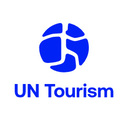‘People and Planet’ the Focus at UNWTO Gastronomy Tourism Forum in Japan
The growing importance of gastronomy tourism as a driver of inclusive development will be celebrated in the Japanese city of Nara next month.
Held under the theme ‘Gastronomy Tourism for People and Planet: Innovate, Empower and Preserve’, the 7th UNWTO World Forum on Gastronomy Tourism will take place on 12-15 December. Organized by the World Tourism Organization (UNWTO) and the Basque Culinary Center (BCC) and hosted by the Nara Prefecture Government, with the support of the Japan Tourism Agency, the event will put the spotlight on the role of gastronomy tourism as a platform for development, women’s and youth empowerment and innovative ways on how to attract and retain talent.
It will also see the launch of UNWTO’s Global Roadmap on Food Waste Reduction in Tourism. The Roadmap provides a consistent framework for tourism stakeholders to embrace the sustainable management of food so that it never becomes waste.
Innovation and social inclusion
UNWTO Secretary-General, Zurab Pololikashvili says: This year’s edition of the Forum represents a unique opportunity for experts to share their best practices and enhance the role of Gastronomy Tourism in sustainability, innovation, and social inclusion, and highlight its importance for regional and rural development.
Joxe Mari Aizega, Director of the Basque Culinary Center, added: The gastronomy sector has a meaningful influence on a region’s image and international projection. And for that, forums like this one are needed to nurture and boost young talents, create value, and, most important, address the challenges that the gastronomy tourism sector is facing.
The Governor of Nara Mr. Shogo Arai said: “Gastronomy tourism has been at the heart of Nara’s initiatives to promote the linkages between food and tourism. Such linkages not only contribute to the promotion of traditional culture and diversity, but also to the development of cultural communication, the regional economy, sustainable tourism, and gastronomic exchanges.”
Commissioner of the Japan Tourism Agency, Mr. Koichi Wada, added: “In this country of great tradition and culture, where tourism and food and beverage professionals are engaged in friendly competition, there are many new initiatives in gastronomy tourism. We look forward to welcoming you back to Japan.”
Global gastronomy leaders
The Forum will once again welcome many of the leading figures of global gastronomy and tourism. Among those set to take part in Nara are UNWTO Ambassador for Sustainable Tourism and Asia’s Best Female Chef of 2016, Maria Margarita A. Fores of the Philippines, Chef Catia Uliassi, ranked number 12 in the ‘50 Best’ from Italy, and Masayuki Miura, owner of Kiyosuminosato AWA Michelin Guide Nara 2022, Green-Star Restaurant (Japan). The full line-up is available on the Forum Programme.
RELATED LINKS
About UN Tourism
The World Tourism Organization (UN Tourism) is the United Nations agency responsible for the promotion of responsible, sustainable and universally accessible tourism.
As the leading international organization in the field of tourism, UN Tourism promotes tourism as a driver of economic growth, inclusive development and environmental sustainability and offers leadership and support to the sector in advancing knowledge and tourism policies worldwide.
Our Priorities
Mainstreaming tourism in the global agenda: Advocating the value of tourism as a driver of socio-economic growth and development, its inclusion as a priority in national and international policies and the need to create a level playing field for the sector to develop and prosper.
Promoting sustainable tourism development: Supporting sustainable tourism policies and practices: policies which make optimal use of environmental resources, respect the socio-cultural authenticity of host communities and provide socio-economic benefits for all.
Fostering knowledge, education and capacity building: Supporting countries to assess and address their needs in education and training, as well as providing networks for knowledge creation and exchange.
Improving tourism competitiveness: Improving UN Tourism Members' competitiveness through knowledge creation and exchange, human resources development and the promotion of excellence in areas such as policy planning, statistics and market trends, sustainable tourism development, marketing and promotion, product development and risk and crisis management.
Advancing tourism's contribution to poverty reduction and development: Maximizing the contribution of tourism to poverty reduction and achieving the SDGs by making tourism work as a tool for development and promoting the inclusion of tourism in the development agenda.
Building partnerships: Engaging with the private sector, regional and local tourism organizations, academia and research institutions, civil society and the UN system to build a more sustainable, responsible and competitive tourism sector.
Our Structure
Members: An intergovernmental organization, UN Tourism has 160 Member States, 6 Associate Members, 2 Observers and over 500 Affiliate Members.
Organs: The General Assembly is the supreme organ of the Organization. The Executive Council take all measures, in consultation with the Secretary-General, for the implementation of the decisions and recommendations of the General Assembly and reports to the Assembly.
Secretariat: UN Tourism headquarters are based in Madrid, Spain. The Secretariat is led by the Secretary-General and organized into departments covering issues such as sustainability, education, tourism trends and marketing, sustainable development, statistics and the Tourism Satellite Account (TSA), destination management, ethics and risk and crisis management. The Technical Cooperation and Silk Road Department carries out development projects in over 100 countries worldwide, while the Regional Departments for Africa, the Americas, Asia and the Pacific, Europe and the Middle East serve as the link between UN Tourism and its 160 Member States. The Affiliate Members Department represents UN Tourism's 500 plus Affiliate members.
UN Tourism Communications Department
+34 91 567 8100
UN Tourism
